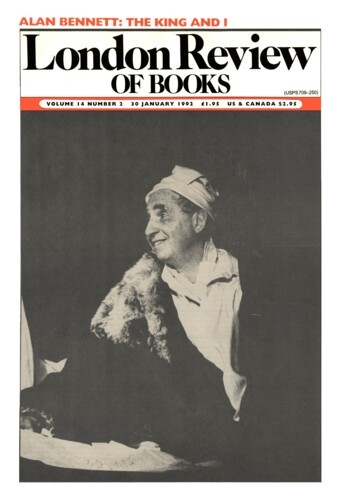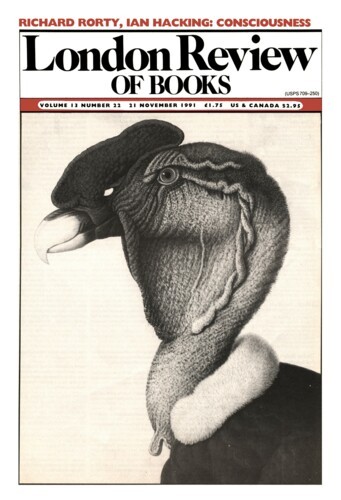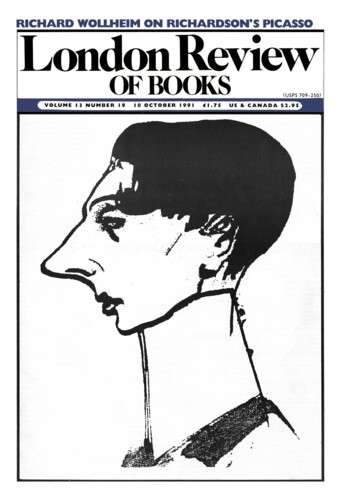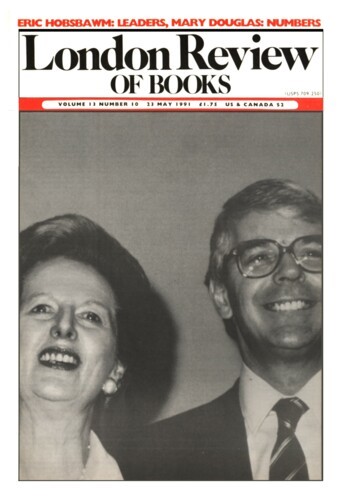Here to take Karl Stead to lunch
C.K. Stead, 30 January 1992
I first saw Barry Humphries on stage in the Phillip Street Theatre in Sydney in 1956 or 57, and got to know him in Auckland in the early Sixties after we had both come back from our first visits to London. Barry’s second wife, Rosalind Tong, a dancer, was an Aucklander. Sometimes Barry would put on a lunch-hour show at the University, which was where I first encountered the then rather down-market but already very funny Edna Everage. There was an evening when Barry and Rosalind took my wife and me to a sort of teen-club under the street where there was a band and dancing. We were all aged about thirty and felt out of place; my inclination was to be inconspicuous, but with Barry Humphries for company it was impossible. The Beatles hadn’t yet begun the fashion that allowed men to grow their hair long; and in Australia and New Zealand the short-back-and-sides was almost a moral obligation, as was the jacket and tie. Barry’s hair was long, partly as a protest (his headmaster in Melbourne was given to saying, ‘Long hair is dirty hair’), and partly because at that time this was the hair that came out from under Edna’s hat. He wore an overcoat and no tie, and looked rather like a tramp, and we hadn’t been long at our table before he had made everyone aware of his presence. When the band began something with a strong beat he suddenly launched himself backwards into the crowd.





